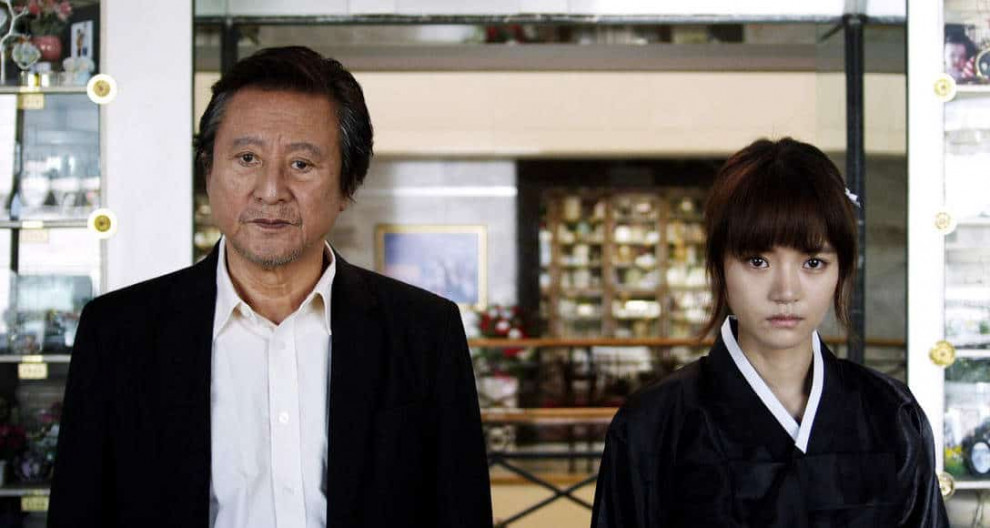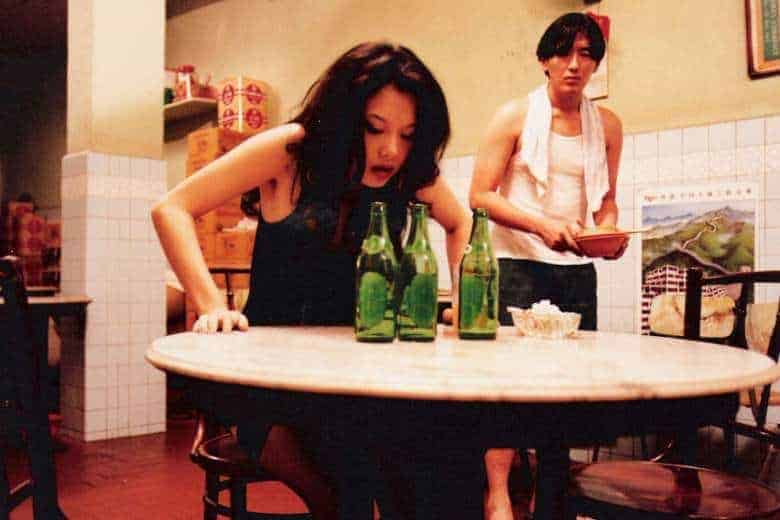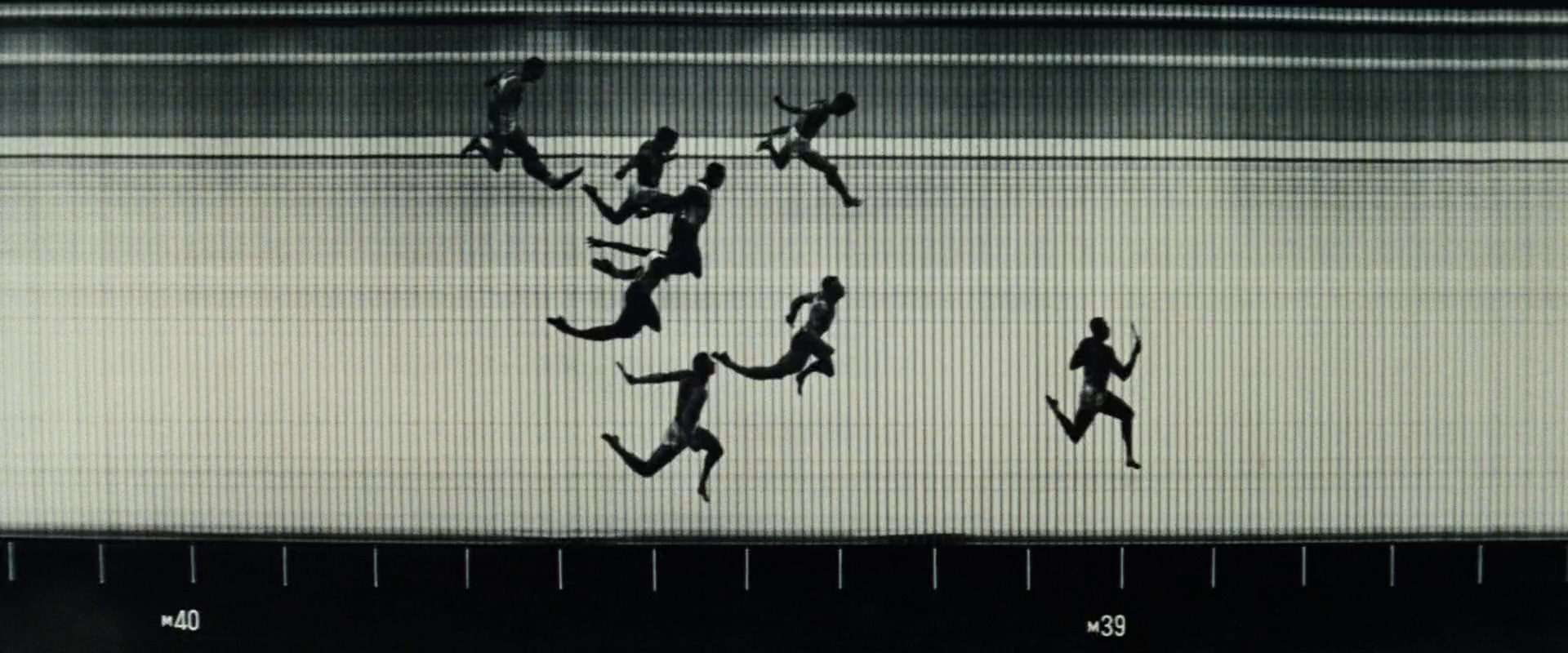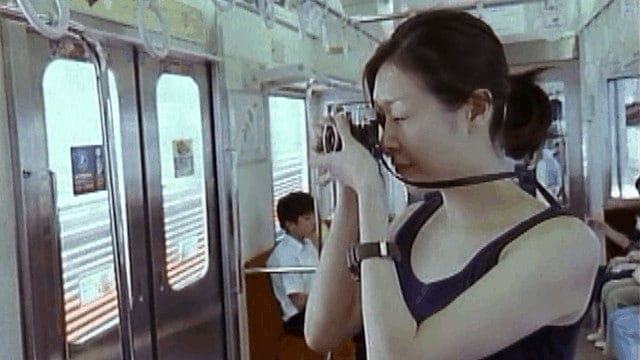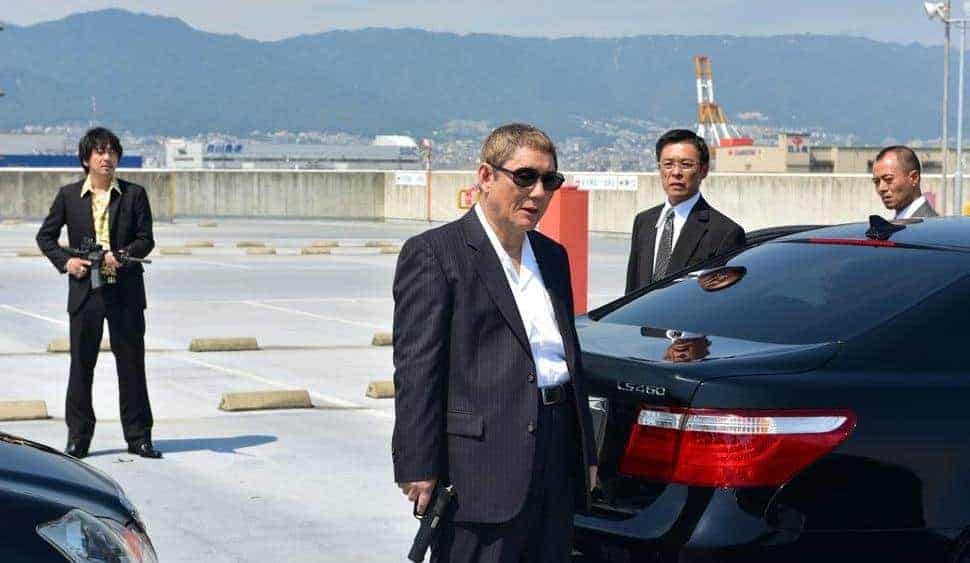Ki-gwang is a veteran of the Vietnam War, who now works as a bus driver. Suffering from the aftereffects of the war, he has become an alcoholic, a tendency that has led him to become estranged from his family. One day he gets a phone call informing him that his son has committed suicide. In the funeral, he meets his granddaughter, Bo-ram, who lets him know that her mother has also died last year in a car accident. Furthermore, Kim Yang-don, a former classmate of his son, is also present in the funeral, and promises to help him and Bo-ram. Ki-gwang decides to stay in town to take care of his granddaughter, at least for a while. However, as he also starts investigating his son's death, he finds out that Kim Yang-don nephew, Gu-yeong has been abusing Bo-ram and that Kim is not as good as he appears to be. As his granddaughter's psychological state deteriorates, Ki-gwang decides to take the law in his own hands.
Lee Seo directs a film that is split into two, radically different parts. The first part is a social, family melodrama, focusing on realism, characters, and the bonds between them. In that fashion, he uses Ki-gwang's bus in an impressive, metaphorical way, as its awful state (a little before becoming scrap metal) mirrors the one of its boss. The melodramatic element is chiefly presented in two scenes. The first one occurs when Bo-ram confronts Ki-gwang about his treatment of his family, blatantly accusing him of everything wrong with the family. The second one when Ki-gwang is watching his bus becoming scrap metal, in a scene where he says goodbye to his vehicle, as much as to himself.
The second part starts at that point, and transforms the film into an action adventure, with Ki-gwang in the role of the vigilante. This segment follows the rules of the genre, presenting an almost invincible protagonist, who wins against scores of enemies. The difference in the two parts, particularly regarding the element of realism is presented through the conflict between Ki-gwang and Gu-yeong. In the first part, their confrontation has the logical outcome any duel between an old man and a young one in his prime would have, while in the second, the exact opposite occurs.
Park Geun-hyeong gives a wonderful performance in the protagonist role, as the sad, sick, but remorseful old man who decides to make up for his past mistakes. His transformation to a vigilante is also accomplished, despite the fact that the script is quite hyperbolic in his case. Doll-like Go Bo-gyeol as Bo-ram is also quite good as the lost teenager who cannot cope with her dramatic circumstances. The fact that she does not know what to make of her grandfather's efforts for reconciliation is also well presented. Jeong Jin-yeong is great once more, in the role of Kim Yang-don, a man who appears kind and polite, despite being a crime boss.
The technical aspect follows the norms of S. Korean cinema, nicely fitting the general aesthetics of the film, without any exaltation. In that fashion, Lee Doo-hoon's cinematography presents a highly realistic visage of urban Korea, particularly during the night. Sin Min-kyeong's editing keeps the film's mellow, but not slow pace, while it finds its apogee in the action scenes, which are much faster than the rest of the film.
“Grandfather” is a very interesting and entertaining film, despite the fact that last part seems a bit disconnected from the rest of the movie.
“Grandfahter” is distributed by M-Line Distribution


